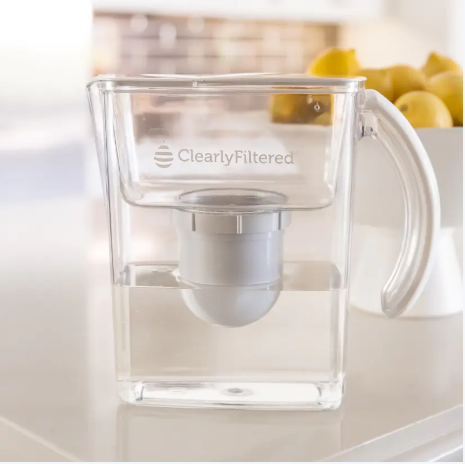Common Immune System Zappers

We all know that a properly functioning immune system is key for optimal health.
Our Immune System The strength of our immune system determines the state of our health. When it’s compromised we become susceptible to catching a cold, the flu or worse. Therefore, maintaining a strong immune system is crucial for helping us reduce the risk of coming down with a cold or the flu.
It’s not the germ, but the soil the germ is planted in, that determines who gets sick and who doesn’t. Those with healthy soil (bodily systems) are able to fight off an infection. While those with unhealthy soil (bodily systems) will allow the germ to take root and lead to disease.
Our bodies are designed to maintain homeostasis, or to maintain a natural equilibrium, or order. We don’t have to think about taking 12 breathes per minute, pumping blood through 60,000 miles of arteries and veins, or how to recognize and attack unwanted germs. Our bodies in-born homeostatic system does this moment-by-moment, day in and day out. Our immune systems job is to recognize viruses, bacteria, and other bugs, and when possible, destroy them before they create an infection.
The immune system has special cells known as white blood cells that patrol the body for invading germs. Proteins in the form of antibodies help us identify and resist repeated infections. Normally after being exposed to a particular virus or bacteria, we become immune to them. This isn’t true of certain viral strains, the cold or flu included. Along with the antibodies, we also have a circulatory system especially for the immune cells, known as the lymph system. The fluid known as lymph is collected and rerouted through the body’s lymph nodes. These pea-sized nodes may become enlarged when a person is fighting off an infection. Doctors often recommend that their patients drink a lot of fluids to help keep the lymph moving freely. This allows the body to rid itself of unwanted waste materials, including the debris from destroyed viruses. I recommend 70 ounces of water or half their weight in ounces for children, be consumed on a daily basis.
Germs are ever present in our environment. They are in the air we breathe, the food we eat and the surfaces we touch. In fact, if our skin, throat, or other mucus membranes were cultured, most of us would be found to contain one type of germ or another. At any given time 5-40% of us have pneumococcus bacteria in our nose or throat. Only the strength of our immune system keeps these germs from causing a problem. This helps explain why some folks don’t have a cold but several of their coworkers do. Remember, it’s not seed but the soil the seed is planted in. A healthy body keeps these germs from causing an infection.
Here is a list of immune zappers that can weaken the thymus gland:

Sugar in any form – table sugar, honey, alcohol, even excess fruit juice (fructose) can suppress the immune system. Just one tablespoon of simple sugar results in a 50% reduction in white blood cell activity for up to five hours! It’s best to go easy on simple sugars, including alcohol. During periods when you are under a great deal of stress (unfortunately when most folks crave sweets) try to avoid eating sugary foods; sweets, fruit juices, cookies, cakes, white bread, honey, etc.
Canned Food
Bisphenol A, or BPA, which coats the inside lining of most canned foods has been linked higher cytomegalovirus antibody levels, suggesting that their cell-mediated immune system is compromised. Elevated levels of CMV are a common finding in my chronic fatigue syndrome patients. To avoid BPA, purchase fresh or frozen foods, versus canned foods.
Microwavable Popcorn
Microwavable popcorn bags are commonly coated in nonstick chemicals called perflurorinated compounds (PFCs) so grease doesn’t penetrate the bag. A recent study in Environmental Health found levels the government considers “safe” are 100 to 1,000 times too high for children. These chemicals have been shown to mess up your immune system; vaccines given to people with higher levels of PFCs in their bodies were much less effective.
Stress
Stress in any form – mental, physical, emotional, and chemical stressors, all cause a drop in immune function. During times of stress try to get more rest. For those of you who are type A’s, allow yourself to take a day off. Take a long leisurely walk. Go to the movies, have a leisurely brunch, hang out with your family and play cards or simply spend the day with a good book. Don’t let anyone make you feel guilty (including yourself) about spending a day relaxing. It’s hard to do for most of us, myself included, but spending a day away from the go, go, go, daily stress will allow your body to recharge itself. When fighting off a cold or flu, don’t exercise. A short walk is fine but strenuous exercise is a stress, a good stress, but a stress never the less. Strenuous exercise should be avoided when your immune system is low.

Receive 15% OFF Essential Therapeutics Delta Sleep and Vira Formula with the code: NL82SALE
However, used as a preventative measure, walking is a potent immune booster.
Walking fifty minutes three times a week increases T-cell activity. Studies show that daily brisk walking reduces the number of sick days by half. Avoid toxic chemicals – pesticides, food additives, unnecessary drugs, and nutritionally devoid foods (when possible). These generate free radicals, which puts further stress on the body. Try to eat nutritionally sound whole foods. Avoid artificial flavored foods and beverages. Trans fatty acids (see my book, “Heart Disease: What Your Doctor Won’t Tell You”) found in most fried and prepackaged foods, causes free radical damage. I recommend you eat whole unprocessed vegetables, nuts, and fruits. Animal products should be eaten in modest amounts and periodically skipped to rest your digestive system. Whole, raw fruits and vegetables foods are easiest on your digestive system.
Dairy Products
They should be eaten sparingly and avoided if you’re experiencing any sinus, throat or chest congestion. Dairy products increase the body’s mucus production. This leads to more congestion. At the first sign of a sinus or respiratory infection eliminate dairy products for several days.
Non-Stick Pots and Pans
Chemicals in non stick pans perfluorooctanoic acid (PFOA) and perfluorooctane sulfonate (PFOS), have been linked to increase risk of certain arthritis. A study published in Environmental Health Perspectives found women with higher levels of hormone-disrupting perfluorinated compounds like in their blood were more likely to have the autoimmune disease osteoarthritis. I recommend using glass, made-in-the-USA cast iron, or stainless steel pans to avoid these potentially harmful nonstick chemicals.
Dehydration
Remember fluids and your lymph system help flush your body of immune-damaging toxins and carry nutrients to any infection sites. Drink at least 70 ounces of water a day. Avoid consuming to much caffeine as it can lead to dehydration.
If your urine is dark yellow in the morning, drink more water during the day. Vitamin B2 contained in multivitamins will often turn your urine a brite yellow, don’t confuse this with being dehydrated. At the same time you should aim for a clear pale yellow colored urine.
Antibacterial Soap
Researchers at the Johns Hopkins Children’s Center found children exposed to antibacterial chemicals are prone to food and environmental allergies. Children with higher levels of anti-bacterials in their urine experienced higher IgE blood antibody levels. High antibody counts signal a response to an allergen; the researchers believe the antibacterial chemicals alter healthy immune system development.
Insecticides
Using toxic insecticides to kill household and lawn pests could increase your risk of developing an autoimmune disease, according to data recently presented at an American College of Rheumatology meeting. Women who sprayed insecticides at least six times a year were about 2½ times more likely to develop lupus or rheumatoid arthritis. Those who hired a professional lawn service to apply insecticides to their yard had a two times greater risk. I recommend you avoid using insecticides in and outside your home. Instead search natural alternative insecticides.
Poor Sleep
A University of Chicago study found that sleeping just four hours a night for a week cut the number of flu-fighting antibodies in study participants’ systems in half.
If you’re struggling with poor sleep then I encourage you to read my blog article on good sleep hygiene.. Find out how you could be sleeping through the night each and every night, starting tonight….
Want to know the real reason folks get sick? Here’s why: READ HERE
Here are the over the counter supplements I recommend to my patients who want to help prevent COVID: READ HERE







